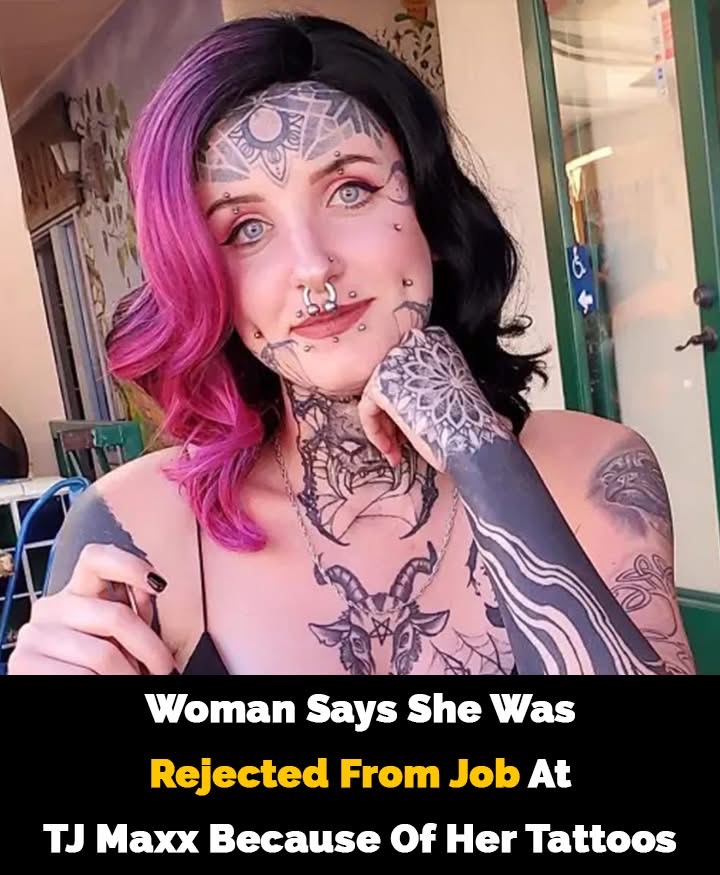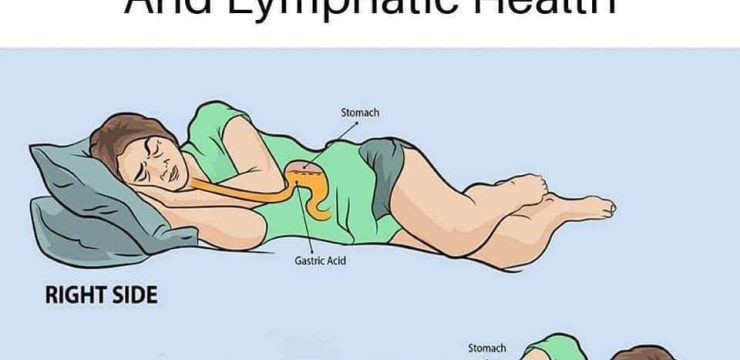A heavily tattooed woman recently took to social media to express her frustration after being denied a retail job at TJ Maxx, only to receive a reality check from online users. Instead of offering support, many commenters pointed out that visible facial tattoos and piercings can be career obstacles, making certain job opportunities difficult to obtain.

Ash Putnam, who goes by the online handle ashxobrien, shared her experience on TikTok, explaining that she had applied for a retail position at TJ Maxx but was rejected. In a video that has since amassed over seven million views, the 24-year-old expressed her disappointment over receiving an automated rejection email instead of a phone call.
“I applied to TJ Maxx a few weeks ago, and they denied my application,” she said. “They couldn’t even call me. They just sent me some automated email.” Seeking clarification, Putnam decided to visit the store in person to speak with the hiring manager. “I went in today and asked, ‘What was the reason I didn’t get hired?’” she explained. According to her, the manager cited a lack of experience as the main reason for her rejection, stating that there were other candidates with more qualifications. However, Putnam suspected that her extensive facial tattoos played a role in the decision.
“I asked her if it was because of my tattoos,” she continued. “Obviously, a lot of places don’t like tattoos. She said that wasn’t the reason, but I don’t feel like that’s true. I’ll leave it at that.” Frustrated with the hiring process, Putnam questioned how teenagers and young adults without previous job experience are supposed to enter the workforce. “How are they supposed to get a job if these places are only hiring people based on experience? It just doesn’t make sense to me.”
@dailymail A heavily-tattooed TikToker is lamenting how hard it is to find a job these days. After being rejected from TJ Maxx, Ash Putnam went to the store and asked if she was turned down because of her appearance, but the employee told her it was due to lack of experience. Do you think her tattoos affected their decision? 🤔 #tjmaxx #jobmarket #jobhunt #tattoos #facetattoo #piercings ♬ this place feels familiar – pxlse. & ascxnd
Before ending her video, she asked her followers to share their own experiences with job hunting, particularly if they had faced similar challenges. “I want to see if I’m the only person experiencing this right now,” she added. “I hate that my tattoos have been such a defining factor for me getting a job or not. Just because I have tattoos doesn’t mean I won’t be a good worker.”
Putnam’s story sparked a lively debate among viewers, with many users weighing in on her appearance and its potential impact on her employability. Some comments were blunt, with one person joking, “Maybe it’s the demon spider?” referring to the large tattoo that stretches from her neck to her lower cheeks. Another user added, “You can be a bartender, tattoo artist, an extra in a prison movie, bassist for Motley Crue,” while another simply wrote, “Unemployable.”
Others suggested that it wasn’t necessarily the tattoos themselves, but their placement that posed a problem. “There’s a reason tattoo artists refer to face tattoos as career enders,” one user noted. Another agreed, writing, “I don’t think it’s because you have tattoos—I think it’s WHERE you have tattoos.” Another commenter, who also has tattoos but avoids facial ink, pointed out, “I have tattoos everywhere but my face, and I can get a job anywhere.”
One TikTok user, identifying themselves as an HR supervisor, weighed in with professional insight. “There is no way any company would put you in front of customers like TJ Maxx,” they wrote. A former hiring manager at TJ Maxx also confirmed this sentiment: “I used to be a hiring manager for TJ Maxx, and I will tell you—it’s the facial piercings and tattoos.”
While workplace norms surrounding tattoos have relaxed over the past decade, extensive body art—especially facial tattoos—can still present challenges in customer-facing roles. If her tattoos were indeed the reason for her rejection, Putnam believes companies need to reconsider their hiring criteria. “If they think tattoos determine job skill and qualifications, they really need to rethink,” she told the Daily Star. “Tattoos, piercings, and colored hair are not unprofessional. It shows creativity and uniqueness. People need to get over not liking tattoos.”
The debate raises an interesting question: should visible tattoos and piercings impact employability? While some argue that personal expression should not affect one’s job prospects, others maintain that businesses have the right to enforce appearance standards, especially in retail and customer service roles. If you were in charge of hiring, would you consider someone with extensive tattoos and facial piercings? Share your thoughts and join the discussion on whether companies should evolve their hiring practices to accommodate modern self-expression.





